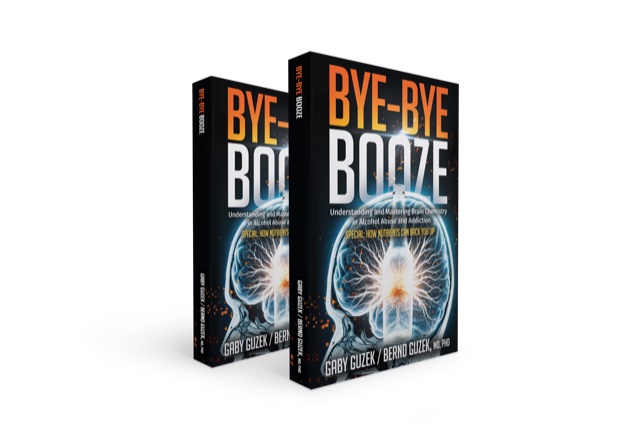The alarm clock rings, I am completely drained. The first half of the night cannot be called “sleep”. Coma would be more appropriate. Wide awake at three o’clock, with the usual heart palpitations. Thought carousel. Everyday things transform into gargantuan demons who sit on my pillow like black crows. At some point they vanish again, and I fall asleep. Two more hours – then I have to get up.
For a long time now, I’ve been limiting the time I spend looking at the mirror to a fraction of a second. I do not want to see the swollen, tired face. But the façade is still the best thing about me. A grey fog of thoughts wafts around my brain. My energy levels suffice barely, just enough to make sandwiches for the kids.
A strong coffee is needed. Now. I feel dizzy and nauseous. I can’t even think about breakfast. A covert glance into the trash can. How much was it again yesterday? Too much, that’s for sure. One thing is for certain: That was really it. This can’t go on like this. I won’t drink any more tonight, I swear.
This oath and I, we are best friends. We have known each other for years.
Of course I have the situation completely under control. I could stop at any time. The days are just so exhausting. Full time worker, self-employed and three children. You need something to be able to relax in the evening. But even without stress, there’s always a reason for a sip. On holiday, for example, you should treat yourself.

Without the glass of red wine, even Santorini’s sunset is only half the experience.
To this day, I have the picture on my mobile phone : the fairytale setting in the evening, my feet sticking out of the private pool of our hotel suite. In the centre of the picture: a full glass of wine. The ultimate proof of prosperity. Today I think of the glass as a photo bomb. The caldera is drowning in the sunset – and I am in red wine. Only the alcohol ennobles the supernatural beauty of this little spot of earth.
Of course I have the situation completely under control. That’s for sure. No one has ever noticed just how much I actually drink. The children do notice that I fall asleep on the sofa at eight o’clock far too often, but that is only logical. I just work a lot and I’m tired. Okay, my husband is another issue. He regularly rubs my alcohol comsumption in my face.
But I’m smart, so I decided to have at least one spare bottle in the house. When it is empty, I have my tricks for disposing of it inconspicuously. Just like the procurement of supplies. You just have to make sure that the shopping bags do not rattle too loudly. Tea towels that you take with you to wrap the bottles in will take care of that. At home a “Leave it, honey, I’ll put it away” protects you from unpleasant questions.
If we have a drink after dinner, I will usually have already drunk my kitchen wine before. That’s nothing bad, Keith Floyd used to do that too.
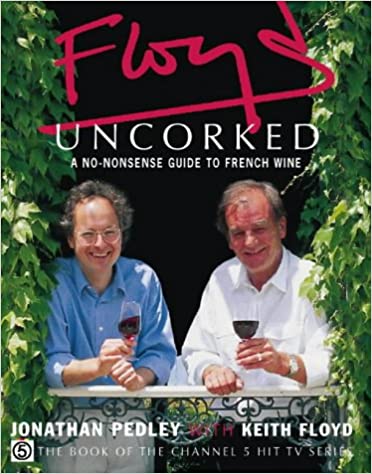
But only one bottle for two for the whole evening, that’s not enough for me. Everything just for relaxation, of course. That’s why the second bottle in the back of the kitchen cupboard is a good idea. Add some snacks as a side dish, and it’s perfect. When we go out in the evening, these extra supplies are convenient for secret pre-drinking. Then you can drink about the same as the rest of the party without drawing any attention.
Today I know that these oh-so-cleverly devised secret supplies are also hiding in millions of other kitchen cupboards. I thought it was an absolutely brilliant and unique idea.
The champion of bullshit bingo
Alcoholic bullshit bingo is the most foolish game in world history: there is only one player, yet it takes years, sometimes decades. Even more stupid: no one has ever won it. I already played it in the professional league. Of course everyone knew that I drank too much. And of course I had no control over it anymore.
It took a long time until I finally accepted it. I am not an alcoholic. I’m not. I am happy, have a wonderful family, a good income, I am successful at my job.
Alcoholic? Those are the slumped figures in front of central station. They were my morning confirmation when I had to catch the first train to get to the capital in time for my appointment. No matter how miserable I felt, no matter how much my head was pounding and how puffy my eyes were – I had nothing in common with the people sitting there. After all, I hurried to business meetings with a fancy laptop bag while wearing stilettos. On the way back, a stop at the train’s bistro-bar was part of my routine. For relaxation. In the evening, the alcoholics were still sitting outside the main entrance. Thank God all this had nothing to do with me.
I was what is commonly refered to as a “functioning alcoholic”. But I didn’t find that out until much later.
When it comes to alcohol, there is a huge gap between the usual clichés and the hard facts. It is difficult to find out the exact numbers, but it’s estimated that tens of millions of people in the english speaking world have a functional drinking problem.

Alcoholics are intelligent, successful and high-income
Most alcoholics are intelligent, have a good to very good income and a higher social status. These are the findings of the “Alcohol Atlas”, which the German Federal Government commissioned.
I was not alone after all.
There are similar surveys from other countries, and it basically applies to the entire western world. An Englishman, for example, who earns 40,000 pounds a year, is twice as likely to drink too much alcohol as someone from lower income groups. We know from individual occupational groups that their representatives reach particularly often for the bottle. Right at the top of the list: doctors and teachers.
Englishman Craig Beck holds seminars on how to stop drinking. Over 100,000 people have already attended. He notes: “Every single one of them was intelligent. Everyone I meet is highly functional and highly successful. I have met millionaires. People who are successful with several companies of their own, I have met employers who employ tens of thousands of people. They all had the same problem: they just couldn’t get away from alcohol.”
I have also looked on YouTube. I found videos from alcoholics of all ages. Entrepreneurs, sports and TV celebrities, housewives or craftsmen. They all talk openly about their alcohol problems in front of the camera.
Then one fine day I googled it for the first time. Just for fun and without constraint.
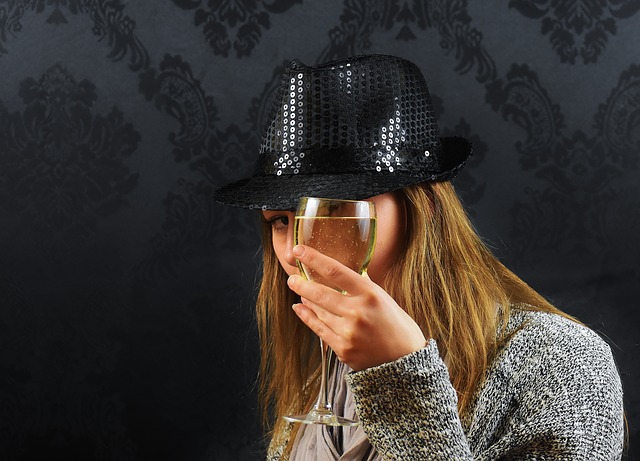
I just wanted to have a look. “Do I have a …?” I didn’t even have to type the rest. Seems a few more people are keen to find out if they have a drinking problem. The search result comes up right before “Do I have a subscription on my phone?” However, the question “Am I a…?” seems to be puzzling even more people: “Am I attractive?” I can understand that. However, it is questionable If Google knows the answer.
Unlike the question of whether or not you have a drinking problem. Unfortunately, the answer was quite clear to me. But the good thing is that there are endless self-tests on the internet. You can search for a clean bill of health until you find one.
As a science journalist, however, I found it astounding that there are apparently no tangible criteria for alcoholism. The tests all differed, sometimes quite drastically. One of them asked me If I drank in the morning and whether my hands would start shaking when I wasn’t drinking. Relieved, I could answer both of these questions with a “no”. Another popular knock-out criterion: “Do you drink alone?” Clear answer: “No!” (The dog was always there). That was the end of the subject the for the time being.
I am telling you: I don’t have a drinking problem. I just drink too much.
But much later, I learned one thing. As soon as you ask yourself if you have a drinking problem – you have one. Actually, you already know it, but self-deception is just so perfected. I assume that you didn’t buy this book because of its beautiful cover art. So I can whisper in your ear: it is very likely that there are already two of us. But maybe you already know that. Or maybe you are a relative.
So let’s assume you have a drinking problem. “I have a drinking problem”, I was able to admit that after a while. At least mentally. Problems can be solved, but usually, it is up to you. But “I am an alcoholic” was somehow not solveable. Not even the thought of those poor souls in front of the train station prevented me from doing so. Rather, the thought of carrying this label around with me for the rest of my life bothered me. According to doctrine, you are still an alcoholic even if you drank your last glass decades ago. Then you are considered a “dry alcoholic”.
Why is that? There are no “dry smokers” or “clean junkies” either. Once you’re addicted to alcohol- you are sick for life. It does not matter If you actually drink or not. Quite the bleak perspetive, in my opinion. But I don’t want to be sick for life, I want to be healthy again – as healthy as I was before my drinking years. Nor do I want to stand in front of a support group, many years later and have to declare: “I am an alcoholic”
As a science journalist, I naturally also looked at how people with alcohol problems can be helped to get away from it. The standard procedure: physical detoxification, followed by clinical long-term therapy for withdrawal and a lifelong attendance at a support group. Success rate: barely there. About one in five manage to keep their fingers off the glass forever. Long-term therapy? Impossible. Just based on the fact that I simply did not have time for therapy – I have three children, am self-employed, and fully committed to my job. Therapy on top of all that? Absolutely not.
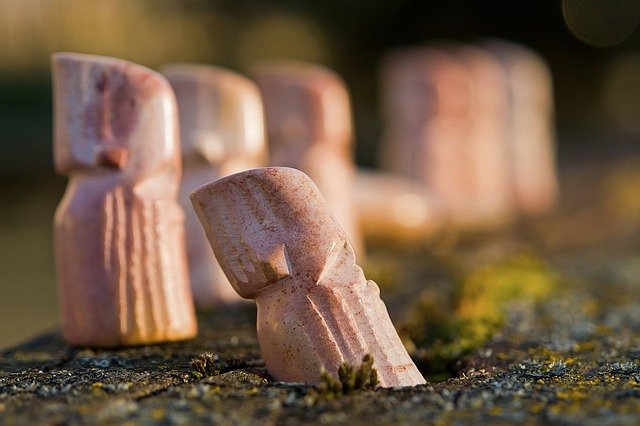
And besides: I thought basket weaving and soapstone carving were stupid, even back at school.
Stop! Before you start to applaud yourself inwardly – I have reached deep into the box of prejudices on purpose. Please discard them – just like I did. Whether someone has to go to the clinic for detox or not is not at all easy to decide. Withdrawing alone and quitting cold turkey involves – depending on the degree of dependency – great risks. I was in a special situation: my husband is a doctor. If I had been wrong and there had been physical withdrawal symptoms, he would have intervened professionally. In extreme cases, a cold withdrawal can be fatal. Not exactly my definition of “fun”.
Second, long-term therapy obviously offers more than painting, handicrafts and a circle of chairs. But I only heard that later on from people who have completed it and whom it has helped. As I said, I decided against it -and it worked for me.
In the beginning, what I was able to find out about different methods to get out of alcohol left me with more question than answers Because a lot of the methods did not fit in with how I perceived myself. I never had the feeling that my constant urge to drink had anything to do with my psyche. I was doing well. I didn’t need to wash away my grief or drink myself courageous, I had enough friends and I was happy. Yet I still couldn’t stop.”
I was sure that this was not due to my weak will. On the contrary. I am a very strong-willed person, determination is my middle name.
It just didn’t work with wine.
For me it felt physical. Just like my diabetic mother-in-law described her overpowering urge for chocolate, cake and the like.

Diabetics don’t yearn after sugar because they have a “psycho-problem”. There are strong medical reasons for this, but was there perhaps a parallel?
Recovery in three simple steps
There is a reason why I have been a medical and scientific journalist for over 30 years. My curiosity has been piqued – and now I had the best research reason ever: I was looking for help for myself. My husband is a doctor and also a scientific journalist. Together we started the research. We spent more than four years reading our way through specialist literature. What is alcohol addiction really? What happens in the body? How does alcohol manage to get to me like that? Here are our results:
The urge to drink is a physical disorder. Strictly speaking the distinction between “psychologically dependent” and “physically dependent” is wrong. If you can’t get your fingers off the booze, there are no psychological reasons. The driving force lies in nerve impulses, whose balance has been thrown off course by alcohol. From the very beginning It is a physical and biochemical dependence. The so-called psychological dependence is actually only the soft version of the visible physical dependence.
Actually, alcohol addiction is a kind of metabolic disorder. This book explains why. You will understand that it is not your “psyche” crying out for alcohol”, but that your urge to drink is purely medical. When I understood this, it took a huge load off my mind, because I was able to deal with it much better. After all, if you break your leg, you are not insulting your own psyche for not being able to walk. It’s like with asthma, diabetes or rheumatism: if you understand your illness well, you can best fight it and defeat it in the end. When you have read the first chapter of the book, you will feel the same with alcohol”.
Alcohol addiction is a serious medical condition. You can help the body to recover from it. Helping people to help themselves is the keyword. For me, the key were nutrients. Vitamins, minerals, trace elements and amino acids put the urge to drink into whisper mode. But the required dosages that could not be achieved through diet – I took these nutrients in the form of tablets, powders and shakes. In this book we describe which nutrients these were.
Of course, everyday life cannot remain the same as it was with alcohol. Temptation lurks around every corner, you need tricks and tips for your new, sober life in our alcohol-impregnated society. They are worth their weight in gold, especially in an emergency, and make it easier to say “no”.
Even if you are already abstinent, but still don’t really feel comfortable in your skin, this book can certainly be helpful for you. Because unfortunately, when you say goodbye to alcohol, your health does not always return automatically. Not only do so-called “psychological” symptoms often remain, but also tangible complaints such as muscle pain, gastro-intestinal problems or cardiac rhythm disturbances. This can also be caused by a huge lack of vitamins, minerals, etc.
Many things may at first seem unusual to you. After all, it often does not correspond to what is generally said and written about alcohol addiction. But you can rest assured that we are firmly grounded in current science. You can find our list of literature with references from international research on our website bye-bye-booze.com.
„Bye bye booze” is the first book that examines the connections between alcohol addiction in such detail and summarises them in a way that is generally understandable.
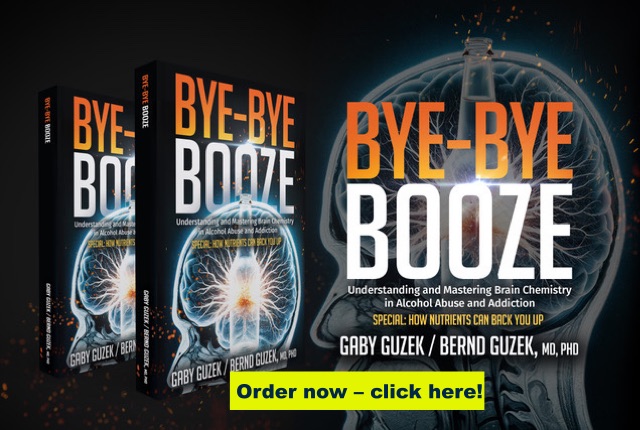
The book focuses on nutrients, i.e. vitamins, minerals etc. – and how they can help you with getting out of alcohol more quickly and successfully.
But even if you are sceptical about this aspect, this book can help you a lot. Nutrient support is a “can” rather than a “must”. You will make a huge step forward if you understand exactly how alcohol got you under its control in the first part of the book, and if you put the tips from the third part into practice in your everyday life.
Our book offers combined knowledge. We looked deep into science and medicine. The whole thing is presented in a simple and understandable manner. Nevertheless, it is possible that something may remain unclear to you. Then just ask us in our community.

